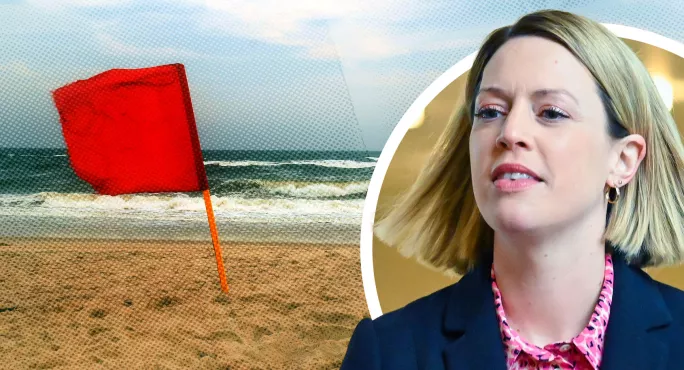Inspection in Scotland is failing to reflect some of the biggest challenges that schools face - including deteriorating behaviour and attendance, education secretary Jenny Gilruth has said.
Ms Gilruth told the Scottish Parliament’s Education, Children and Young People Committee that when concerns about behaviour in schools reached a crescendo in 2023 - prompting a series of summits on violence in schools and, eventually, a behaviour action plan published in August - the Scottish government lacked an “evidence base”.
Inspection was meant to “flag up where there are areas of concern”, but when it came to issues such as behaviour and attendance - which should have been “flagged up through inspection reports” - the government lacked intelligence.
‘Gap’ in school inspection evidence
Instead of getting evidence about the situation in schools from inspection, the government was “reliant” on the Behaviour in Scottish Schools Research report, published last November, which had not previously been carried out since 2016, leaving “a gap” in evidence.
Ms Gilruth said: “I would have expected in that time that inspection reports would have provided some of that challenge and that advice to ministers, but it’s not necessarily captured by the way we currently inspect schools.
“So I suppose there’s a wider question there about are our inspection reports asking the right thing? That’s why [interim chief inspector] Janie McManus’ work on the framework is really important.”
Tes Scotland revealed in an exclusive interview with the interim chief inspector in April that school inspection was to be reviewed. Ms McManus said no aspect of the inspection process - from frequency of inspection to reporting - was off the table and that the review would include revising the framework for inspecting schools, the fourth edition of How Good is Our School, which has been in place since 2015.
Ms Gilruth’s comments yesterday followed evidence to the committee last month, in which an education director criticised the inspectorate for failing to provide feedback on the overall state of Scottish education.
Unused powers of inspection
The education secretary - who was giving evidence on the Education (Scotland) Bill, which was published in June - also hinted that she would like to see inspectors scrutinising university initial teacher education (ITE) programmes.
She said the power to do so had “never been used”, yet ITE is “integral to delivering quality learning and teaching”.
Ultimately, however, Ms Gilruth said that in the future the independence of the chief inspector would be enhanced: they would be empowered to “lead on the direction of inspection”.
Increasing the independence of the inspectorate is a goal of the government’s ongoing education reforms, which also include replacing the Scottish Qualifications Authority (SQA). Both the independent inspectorate and the new qualifications body, Qualifications Scotland, are expected to be up and running by autumn 2025.
Also at the parliamentary committee yesterday, Ms Gilruth said that the body that replaces the SQA must be “less defensive”, “less about gatekeeping” and instead put teachers’ and students’ views “at its heart”.
Under the plans for the inspectorate, the chief inspector will be required to publish an annual report showing the “performance of the Scottish education system”.
Recruitment to the post of chief inspector is ongoing, after applications closed on Sunday. The successful candidate will command a salary of around £108,000 per year.
For the latest in Scottish education delivered directly to your inbox, sign up for Tes’ The Week in Scotland newsletter




